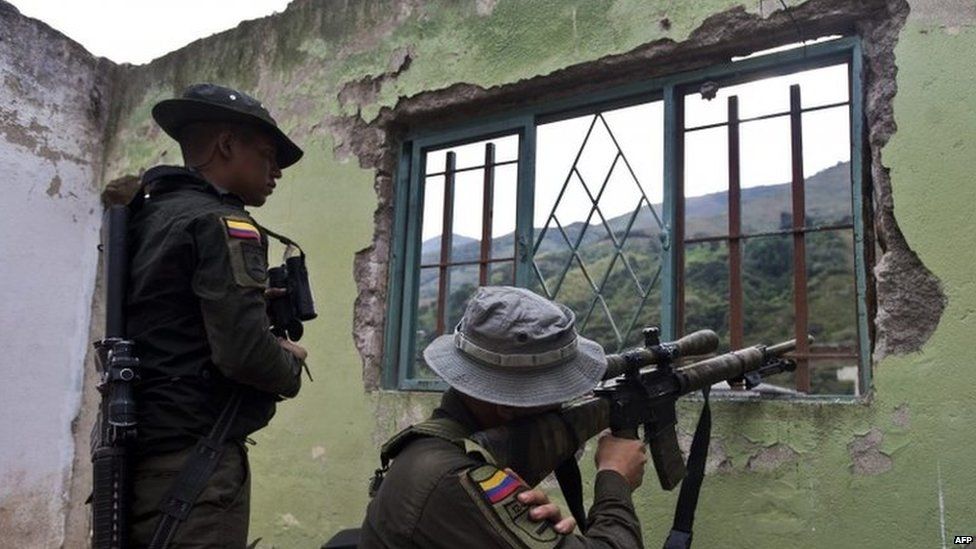-
12 July 2015
- From the section Latin America & Caribbean

The Colombian government has issued a joint statement with Farc rebels agreeing to de-escalate the conflict.
Government forces will pull back from military action against the rebels from 20 July if the Farc fulfils their promise of a unilateral ceasefire.
For the first time since peace talks began 2012 the Colombian authorities agree to reduce military activity.
The government previously said a mutual ceasefire would be used by the left-wing rebels to regroup and rearm.
The joint statement was read out by international mediators in Cuban capital, Havana, where the talks began nearly three years ago.
The government and the rebels said they will work together to try to speed-up an agreement on a permanent bilateral ceasefire.
‘Concrete commitments’
Last week, the Farc announced it would begin a unilateral ceasefire on 20 July.
The Farc’s chief negotiator at the talks in Cuba, Ivan Marquez, said he hoped the ceasefire could lead to a bilateral truce.
Previous Farc ceasefires during the peace negotiations were not reciprocated by the Colombian military.
A Farc ceasefire was called in December, but clashes resumed in April with the killing of 11 soldiers and subsequent bombing raids on rebel positions.
Farc suspended that ceasefire on 22 May.
Negotiations have continued despite the violence, and agreement has been reached on several points.
The talks in Havana are aimed at ending more than 50 years of conflict.


